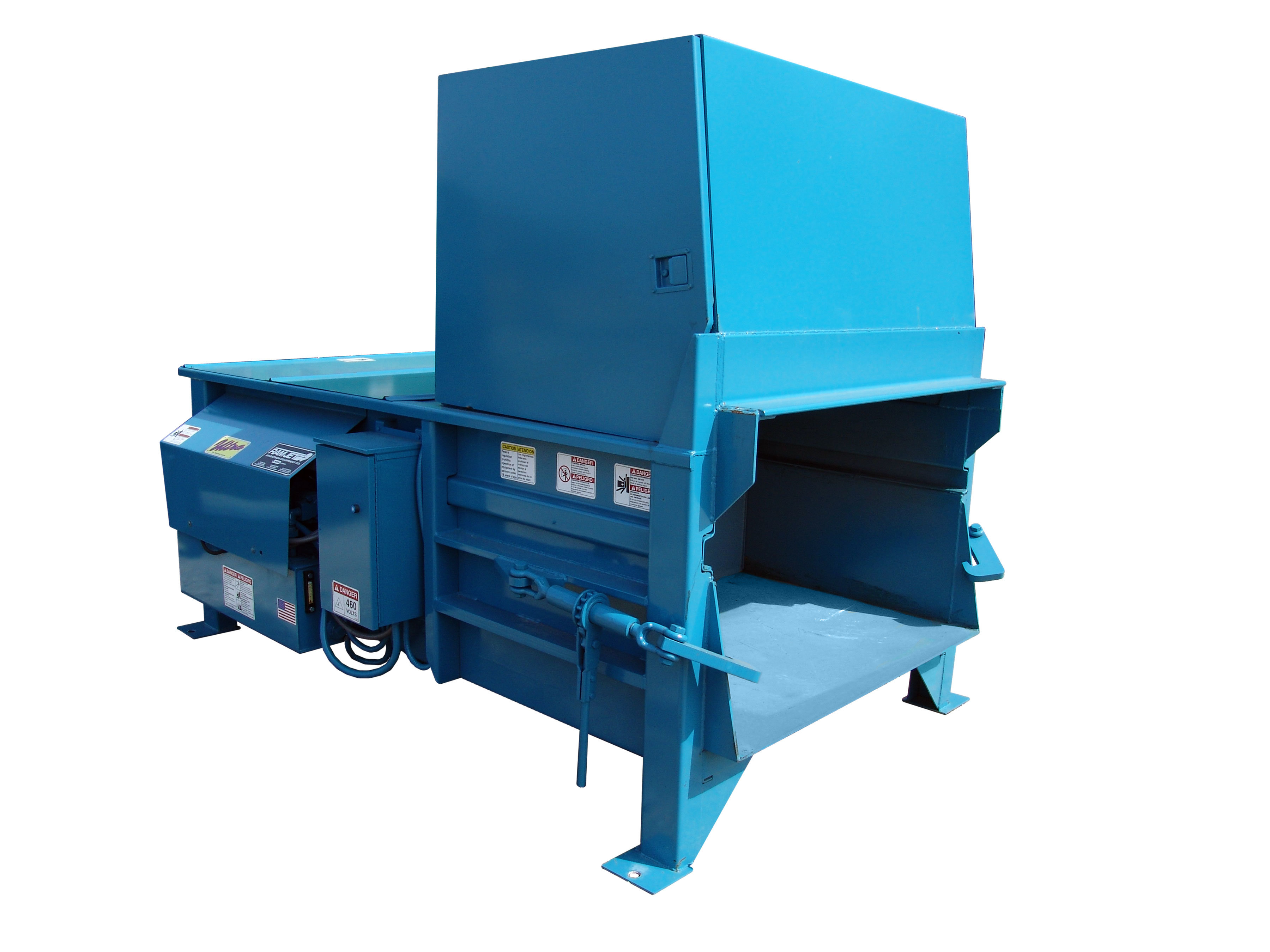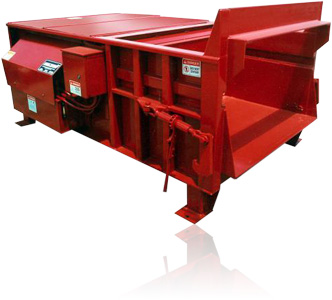Commercial trash compaction equipment and its role in minimizing waste volume
Wiki Article
Just How Waste Equipment Enhances Effectiveness in Garbage Disposal Procedures
Waste Equipment plays a vital role in enhancing the performance of garbage compactor procedures. By utilizing advanced sensors and automation, these systems improve compaction cycles and keep track of tons capabilities efficiently. This assimilation not just preserves power yet additionally reduces pickup regularity and linked expenses. As companies significantly take on these innovations, the implications for operational sustainability and administration techniques become clearer. What other benefits might arise from these advancements in waste Equipment?The Function of Advanced Sensors in Compaction Performance
Advanced sensing units play a necessary duty in improving the efficiency of garbage compactor. These sophisticated devices keep track of various parameters, including lots capability, dampness levels, and compaction cycles, enabling real-time adjustments. By properly evaluating the amount of waste, sensing units make it possible for compactors to optimize their procedure, ensuring that energy usage is reduced while optimizing the volume of waste processed.Advanced sensors contribute to anticipating upkeep by identifying potential problems prior to they lead to Equipment failing. This positive strategy not only minimizes downtime yet additionally prolongs the life expectancy of the compactor. In enhancement, data gathered from these sensors can be examined to improve operational strategies, leading to improved waste administration techniques. Overall, the combination of sophisticated sensors in trash compactors substantially enhances their efficiency and functional effectiveness, equating right into cost savings and a more sustainable approach to garbage disposal.
Sturdiness and Design: Materials That Issue
The toughness and layout of garbage compactor pivot significantly on the products utilized in their construction. High-grade steel is often the main option, providing strength and resistance to tear and use. This durable product holds up against the immense stress applied during compaction, guaranteeing durability and reliability. Additionally, components such as hydraulic systems are commonly crafted from corrosion-resistant alloys to stop degradation with time, enhancing operational performance.Design likewise plays an essential role in capability; strategic reinforcements and ergonomic forms can markedly affect efficiency. Makers usually prioritize modular layouts, enabling less complicated repair and maintenance. Additionally, improvements in layer innovations, such as powder coating, boost resistance to environmental factors, including wetness and chemicals. Ultimately, the mindful option of products not only improves the architectural stability of garbage compactor however additionally contributes to their overall efficiency and effectiveness in waste administration procedures.
Automation and Smart Technology in Waste Equipment

Automated compactors can enhance compaction cycles based on the quantity of waste, maximizing space and improving operational efficiency. Assimilation with mobile applications permits customers to monitor and manage compactors from remote locations, enhancing ease and responsiveness. By Commercial garbage compaction equipment adopting these innovations, waste management firms can not only enhance their operational process yet likewise add to more sustainable practices by lessening waste and maximizing resource usage. On the whole, automation and smart technology stand for a considerable leap ahead in the performance of garbage disposal procedures.
Information Analytics for Optimizing Waste Administration
Taking advantage of data analytics provides waste monitoring firms a powerful device for boosting and enhancing operations effectiveness. By accumulating and analyzing data from numerous resources, such as compactor efficiency metrics and waste generation patterns, business can obtain important understandings. These insights enable them to make enlightened choices relating to collection timetables, compactor usage, and maintenance requirements.In addition, anticipating analytics can forecast waste generation trends, enabling business to designate resources better and stay clear of possible overflows or underutilizations of Equipment. Real-time tracking through data analytics additionally improves the capability to respond swiftly to operational challenges, decreasing downtime and improving service dependability.
In addition, integrating data analytics with existing waste administration systems fosters a society of constant improvement. By tracking and recognizing ineffectiveness performance gradually, business can refine their procedures and embrace finest methods, eventually causing an extra efficient and lasting waste administration approach.
Price Savings Through Improved Operational Performance
By improving procedures and minimizing waste, business can attain substantial price financial savings in their waste management processes. Improved operational effectiveness in garbage compactor lowers the frequency of pickups, bring about reduced transportation expenses. Advanced waste Equipment allows for maximum compaction, taking full advantage of container ability and lessening the demand for extra bins.This enhanced performance not only reduces waste disposal fees however additionally expands the life-span of Equipment, decreasing maintenance prices. Automated surveillance systems give real-time data, allowing for positive changes in waste handling, which can furthermore improve efficiency and lessen unexpected expenditures.
Additionally, durable training programs for personnel on Equipment use can lead to improved functional techniques, better driving down prices. Inevitably, the combination of effective waste Equipment fosters an economical waste administration strategy that profits business monetarily while guaranteeing smoother procedures.
Environmental Effect: A Sustainable Method to Waste Monitoring

Additionally, implementing recycling campaigns alongside compaction processes allows business to divert products from garbage dumps, advertising round economic climate principles. Services that adopt eco-friendly techniques not just enhance their company obligation however also interest significantly eco-conscious consumers. By prioritizing sustainability in waste administration, organizations can achieve a dual advantage: improving functional efficiency while actively adding to environmental conservation. This balanced strategy placements organizations as leaders in lasting practices, cultivating a much healthier world for future generations.
Often Asked Inquiries
Just How Often Should Waste Equipment Be Kept for Optimal Efficiency?
The regularity of maintenance for waste Equipment typically depends upon use and maker referrals - Industrial waste compaction equipment. Generally, assessments need to occur quarterly, with complete maintenance each year to ensure peak efficiency and stop potential failures or ineffectivenessWhat Kinds of Waste Can Be Refined in Garbage Compactors?
Garbage compactors can process different kinds of waste, including cardboard, paper, plastics, and non-hazardous food waste. Customers must avoid condensing dangerous materials, metals, and fluids to ensure safe and effective operation.Exist Safety And Security Features in Modern Garbage Compactors?
Modern garbage compactors typically include safety features such as automated shut-off devices, emergency quit buttons, and sensing unit systems (Industrial waste compaction equipment). These enhancements are developed to safeguard customers from possible threats during procedure, advertising a more secure working settingHow Does Waste Equipment Effect Labor Demands?
The influence of waste Equipment on labor demands is considerable; it usually decreases the requirement for hands-on labor, improving and streamlining procedures performance. Fewer workers are required, enabling organizations to assign resources a lot more successfully.What Is the Ordinary Lifespan of a Garbage Compactor?
The ordinary lifespan of a trash compactor typically varies in between 10 to 15 years, depending upon use, upkeep, and environmental aspects. Routine maintenance can prolong this life-span, making sure perfect efficiency and reliability throughout its functional years.By taking on these modern technologies, waste administration business can not just boost their functional operations however likewise contribute to more sustainable techniques by minimizing waste and optimizing source usage. By lessening and improving procedures waste, business can attain substantial expense savings in their waste administration processes. Lasting waste administration approaches, especially in trash compactor operations, add substantially to reducing landfill waste and lowering carbon impacts. Modern waste Equipment is designed to optimize compaction, thereby decreasing the volume of waste needing disposal. Trash compactors can process numerous types of waste, consisting of cardboard, paper, plastics, and non-hazardous food waste.
Report this wiki page